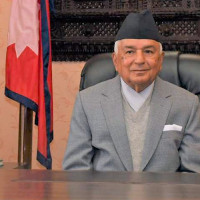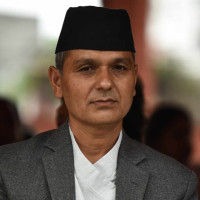- Thursday, 19 February 2026
Rationale Behind Gen Z’s Demands
The two-day movement by Gen Zeers on September 8 and 9 in Kathmandu and elsewhere has caused a political upheaval in Nepal. The movement was directed mainly at the social media ban and corruption control. The ouster of the Oli-led government was not on the agenda of the movement. However, the movement culminated in the Oli-led government crashing down, with the prominent leaders having to take shelter in Nepali Army barracks and the formation of an interim government under the leadership of Sushila Karki, a former Chief Justice.
The main functions of the interim government are to hold elections, which have been slated for March 5, 2026, maintain law and order, rebuild structures damaged or destroyed during the movement and, more importantly, restore good governance by curbing corruption and bringing to book those involved in such malpractices. The Nepali people are fed up with the successive governments. The undeclared power-sharing mechanism rotates around three parties: the Nepali Congress, CPN-UML and CPN-Maoist Centre. And the presidents or chairs of these parties are the ones who become Prime Minister in turn. Although there are voices within the parties to hand over power to the young generation, these apex leaders are not willing to do so.
Instability
There has been political instability for years in the country. No government has been able to survive its full tenure of five years. This is mainly because of the electoral process. The electoral process consists of first-past-the-post and proportional representation systems. Under the system, it is hard for any political party to achieve a majority, forcing the major parties to form a coalition government, which has made it difficult to notch up political stability. As the House of Representatives has been dissolved, this is the right time for the interim government to take measures to curb control and reform the governance system.
Corruption in the country is so horrendous that the country has been notorious for corruption in Asia and the rest of the world. This has given a bad message to the world community. To prevent the image of the country from getting tarnished further, it is imperative to take strong action against corruption. For this, a powerful anti-corruption commission needs to be formed without delay. The commission should be assigned full power to investigate the illegally earned assets of not only corrupt leaders but also their families. Such assets may be stashed in foreign countries also. Diplomatic initiative may help bring back such assets to the country.
On the basis of the investigation, action should be taken against the corrupt. The anti-corruption campaign should be extended to government bodies, NGOs, banks and financial institutions and private companies as well. There are no educational criteria regarding fighting elections for local, provincial or federal levels in the country. Even uneducated or undereducated people can fight any election. This has made it possible for even illiterate people to become MPs. One of the demands of the Gen Z movement is that a Bachelor’s level should be the minimum educational qualification for MPs, municipal Mayors and Deputy Mayors and rural municipal Chairs and Deputy Chairs.
The demands are, however, silent on educational qualifications for Ward Chairs and members. Educational qualifications should be at least a Bachelor’s level for Ward Chairs and +2 level for ward members. Such a provision will eliminate the so-called thumb impression culture in the political circle. The political parties are now down but not out. They are trying to rise from the ashes and grab power again in the upcoming elections under the same old leadership. If this happens, the same old faces may rule the country. This may neutralise the achievements of the Gen Z movement. What is more, the leaders might take action against the protesters, accusing them of destroying property and indulging in arson and looting.
The demands of the Gen Z movement are aimed at reforming the governance system. The provision for a directly elected Prime Minister is a progressive agenda. Further, provision for disallowing a person to become Prime Minister more than two times is another feather in the cap. Other progressive demands include the dissolution of the provincial level of government. There are 550 provincial seats in the country. This second tier of government has not been able to prove its mettle. Most of the people are in favour of dissolving the provincial level of government. The country can save a lot of state coffers by dissolving this level of government.
Age limit
The demands are, however, silent on the age limit for candidates fighting elections. As there is no age limit, the country has become a gerontocracy. The people are in favour of the young generation ruling the country. There should be an age limit for those fighting elections. The age limit should be 65 years of age at the time of filing for candidacy at any election. Such a provision ensures that the gerontocracy so deeply entrenched in the country’s politics can be extirpated.
The present government should not only hold elections on time but also take bold steps to take action against corrupt leaders and their families and put the kibosh on gerontocracy, allowing the young generation to rule the country. If such edifying tasks can be accomplished by the government, the spirit of the Gen Z will be realised and justice will be done to the Gen Zeers and others who sacrificed their lives during the Gen Z movement.
(Maharjan has been regularly writing on contemporary issues for this daily since 2000.)
















